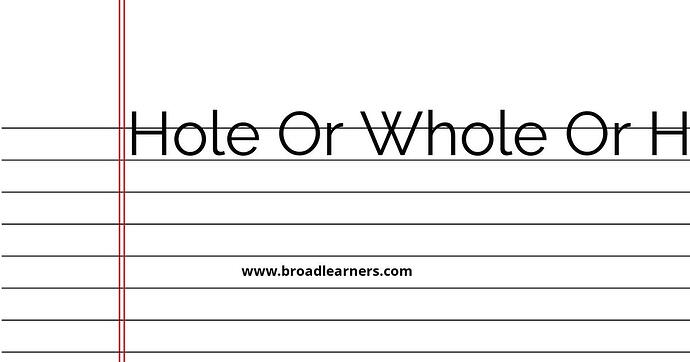'Hole', 'whole', and 'hold' are commonly confused words in English grammar. Understanding the difference between 'hole', 'whole', and 'hold' is important to use them correctly in written and spoken English.
'Hole' is a noun that refers to an opening or a hollow space in something. It can also be used as a verb to mean creating a hole or making something hollow.
'Whole' is an adjective that means complete or entire. It refers to something that is not divided or lacking any parts.
'Hold' is a verb that means to grasp, grip, or keep something in one's hands or control. It can also mean to have a particular opinion or belief.
Let's take a closer look at the meanings and usage of 'hole', 'whole', and 'hold'.
| 'Hole' | 'Whole' | 'Hold' |
|---|---|---|
| The word 'hole' is a noun that refers to an opening or hollow space. | The word 'whole' is an adjective that means complete or entire. | The word 'hold' is a verb that means to grasp or keep something in one's hands or control. |
|
|
|
To remember the difference between 'hole', 'whole', and 'hold', it can be helpful to understand their meanings and usage in different contexts.
Here are some examples of correct usage:
- Be careful not to fall into that hole.
- The whole family went on vacation together.
- Hold the door open for me, please.
Remembering the correct usage of 'hole', 'whole', and 'hold' will improve your grammar and communication skills.
